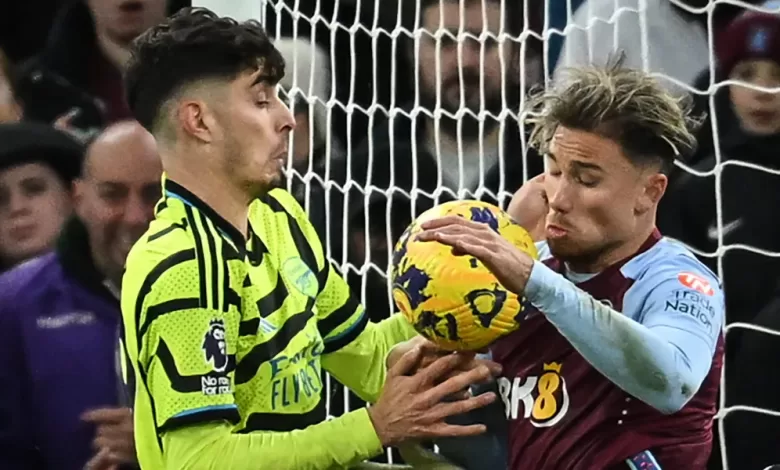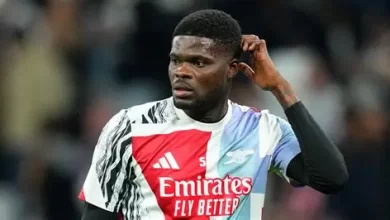Howard Webb: ‘Havertz’ handball was not intentional, but it still has to be penalised’
Reveals why Matty Cash's handball was not penalised

Former Premier League referee, Howard Webb, the chief operating officer at PGMOL, the organisation that oversees the League’s match officials has explained
why Arsnal’s stoppage time goal against Aston Villa at Villa Park last weekend was disallowed
Referee Jared Gillett ruled out the goal and awards a handball against Kai Havertz in the build up to the goal and VAR confirmed the decision.
Webb explains via the Premier League official website why the referee disallowed the goal: “The law states that any contact with an attacker’s hand or arm –
even accidental – which then leads to a goal being scored immediately has to be penalised.
‘And this is actually a really good on-field decision by the referee, Jarred Gillett, in that respect. The law requires him to penalise when he sees that
contact on Kai Havertz’s arm.
“It’s not intentional, but it still has to be penalised. I think the idea was that if it comes off the arm, it can’t be a fair goal – that was the reason why
this law came in.
‘But we see this kind of situation leading to a goal disallowed when it hits Havertz’s arm and yet a few seconds earlier, it hits Matty Cash’s arm as well –
equally accidentally – but he doesn’t get penalised.
“He (Cash) can’t be penalised, because he’s got to commit a different offence as a defender – he’s got to make himself unnaturally bigger or deliberately
handle the ball.
‘He does none of those, so it’s correct not to penalise, but we’re working with a different threshold for the attacker. It hits Havertz’s hand, and we have
to disallow the goal in this circumstance.
“This law has been in place for, I think, about five years now. It was decided by the International FA Board [IFAB], through their consultation, that goals
that are scored off the arm are not fair, and therefore this law came in. The laws are always under review, maybe it will change, but in this circumstance,
the referee did absolutely the right thing.
“And then once the on-field decision has been given as a disallowed goal, then the VAR checks the footage, just to make sure the referee has not mistakenly
seen a contact on the arm. In that case, the goal should stand, if it’s only hit the body.
“But of course, the VAR has to check if there’s clear evidence that the ball did not hit the hand to intervene. If it’s not conclusive, they’ll just leave
this on-field decision alone. But actually, when you see the VAR’s process, they do get to the point where they see an angle that shows the contact on
Havertz’s arm.
“Interestingly, if it had been Nketiah who had scored the goal, it would have stood, because it only relates to the goalscorer – in this case, Havertz, who
made contact with the arm. It didn’t hit Nketiah’s arm – if he pokes it in, it’s a goal, because everything before that was all accidental.
“He [Gillett]’s got a clean view of it, what, from 25 yards out. He does [make a good decision in real time]. And we’re always encouraging the officials,
even with the existence of VAR, to be prepared to make positive, accurate, on-field calls. We’ve said for a long time, good officiating starts on the field
of play.
“VAR is not there to referee the game – it’s there as a safety net for clear errors. Jarred sees this situation clearly from that position and penalises, and
is right to do so – credit to him for doing that,’ said Webb.




